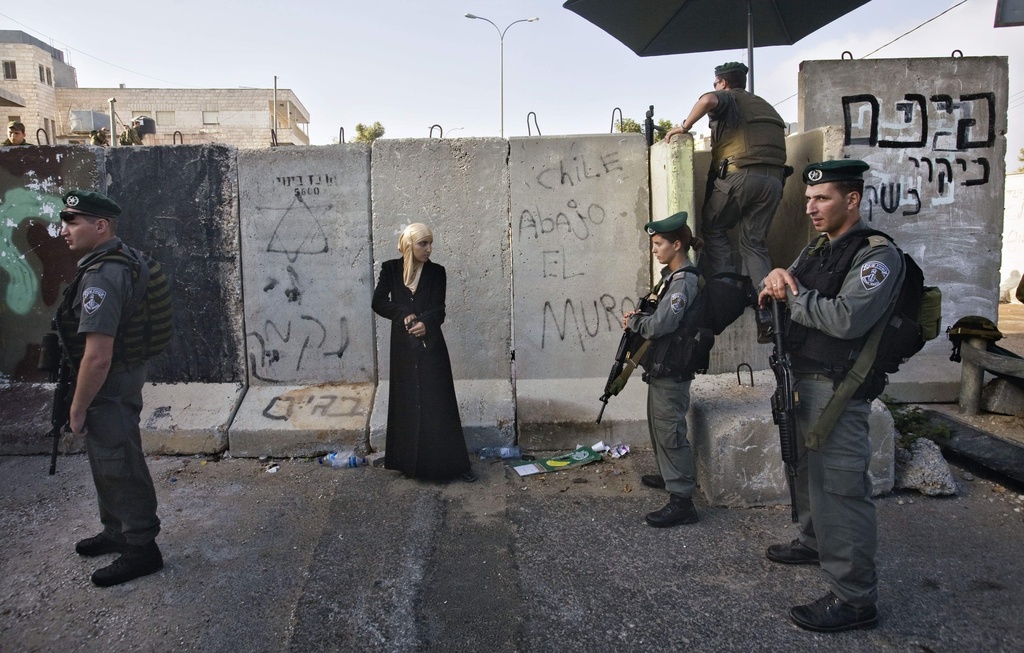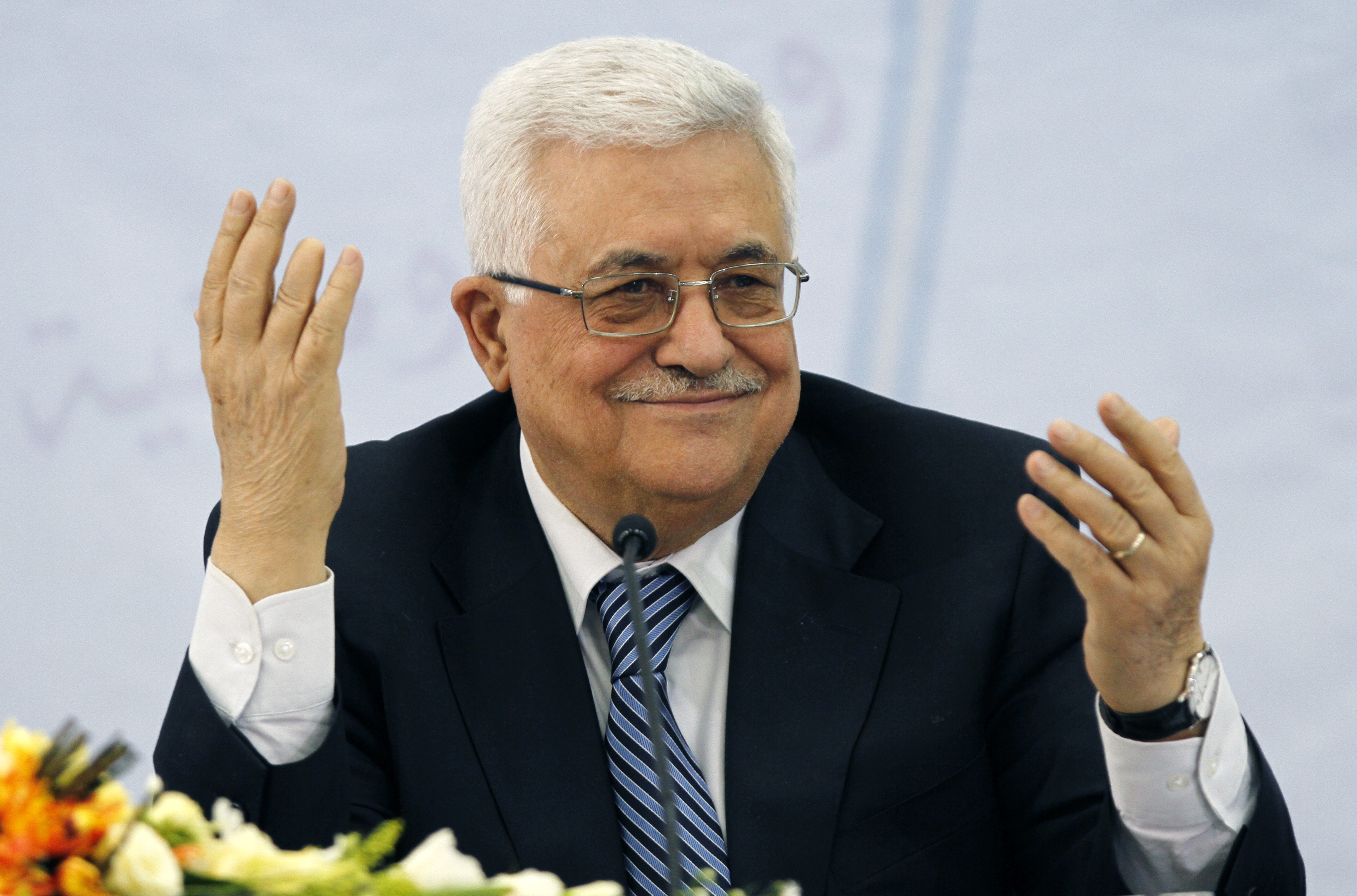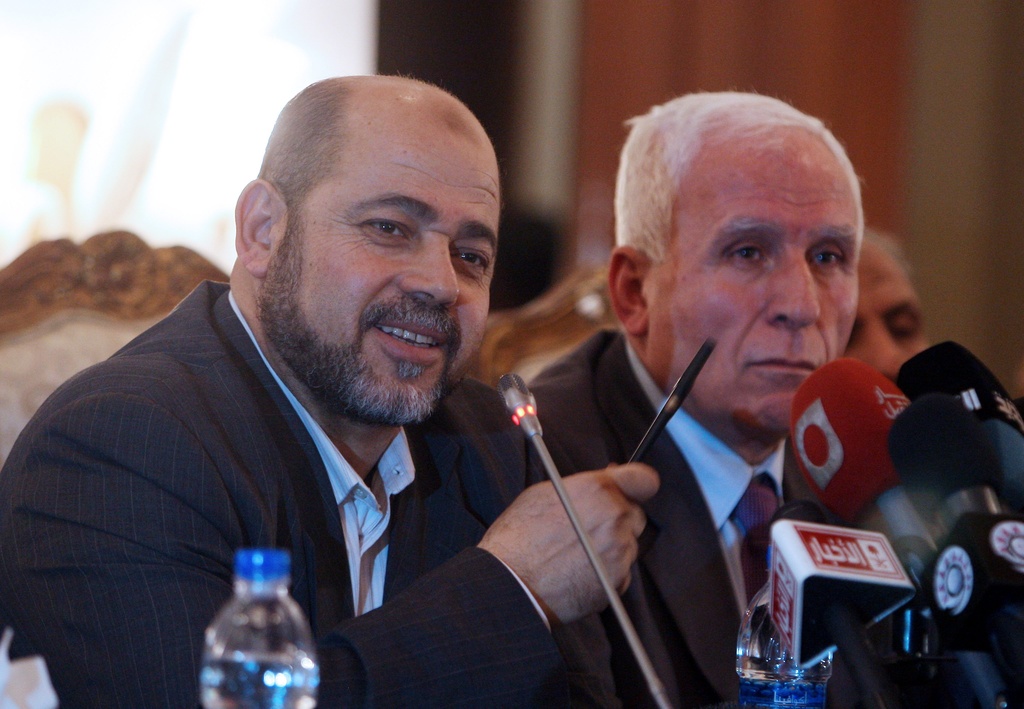Switzerland debates Palestine question

The United Nations General Assembly will decide on whether to formally recognise Palestine as a state at the end of September. Bern has yet to announce its position.
Disagreement is rife among politicians, experts and diplomats in Switzerland about how far the country should go on the issue.
“We have been fruitlessly sitting at the negotiating table for 20 years,” Ibrahim Khraishi, the Palestinian ambassador to the UN, told swissinfo.ch.
“Now is the moment to act and to go directly to the UN so it officially recognises the existence of a Palestinian state within pre-1967 borders which includes the whole of the West Bank, the Gaza Strip and East Jerusalem.”
Palestinian and Israeli negotiations have been at a stalemate for more than two years. Meanwhile Israel continues its policy of occupying East Jerusalem and building a wall around the West Bank.
As a result, the Palestinian National Authority has decided to formally request UN membership as the 194th state. The move has prompted opposition from both Israel and the United States, with Washington remaining mindful of the strong pro-Israeli lobby in Congress in this pre-election year.
It has already mooted using its veto in the Security Council. “Should we encounter American resistance, which we are basically expecting, we will present a request to the General Assembly to accept Palestine as an observer state, like the Vatican,” said Khraishi, who was invited to a round table in Bern on Monday organised by the foreign policy think-tank Foraus.
“In this body we only need the support of a majority of countries. Until now more than 100 have recognised the Palestinian state,” he added.
Switzerland, like the European Union, has not, but Khraishi remains optimistic: “Bern has demonstrated many times that it believes in a “two-state” solution, as in the UN resolution, and I hope that it will take the right decision in September”.
Israel reaction
But the Israeli ambassador to Switzerland, Ilan Elgar, denounced the Palestinian move as “taking a unilateral decision which excludes Israel from the negotiating table”.
“They are asking the world to take a position but don’t want to restart talks with us, the ones directly affected,” Elgar told swissinfo.ch. “Negotiations are based on trust and reciprocal respect. If these are missing, how can we carry on?”
Elgar said that UN recognition would not resolve crucial questions such as border issues, the division of Jerusalem and the return of refugees.
He underlined several times how a Palestinian state could only come about with direct negotiations, without, however, saying under which terms Israel – militarily and politically the stronger – would be ready to make concessions.
Mixed views
In Europe, Israel has the support of Germany and Italy, and the Swiss are expected to give their view at the end of August, based on the recommendations of the foreign affairs parliamentary committees.
The Senate committee on Tuesday said that Switzerland should not take a position, while the House of Representatives’ body has yet to discuss the matter.
Experts are divided on the recognition of Palestine without Israeli and US support, even if they agree on the necessity of finding a peaceful solution to the conflict.
For Daniel Möckli, of the Center for Security Studies at the Federal Institute of Technology Zurich, recognition would mostly be “a symbolic act, which risks worsening the Palestinian population’s living conditions and endangers Israel’s participation in future peace talks”.
Andreas Brönnimann, an ultra-conservative Federal Democratic Union parliamentarian and deputy president of the Swiss-Israeli parliamentary group, agrees. “This proposal is too premature,” he said.
“At the moment Palestine is divided into two political forces: Hamas and Fatah. The priority is not independence but finding a stability which one day could result in them taking on responsibility of leading a new Palestinian state.”
Brönnimann says Palestine is not a sovereign state. Switzerland should therefore remain “neutral” in the face of two parties in conflict and continue to contribute to the peace process through strengthening Palestinian democracy and targeted humanitarian work.
After Kosovo
Although right-leaning political parties are generally against recognition, there is support on the left. “[It] could bring a new dynamism into finding a solution to the conflict; it’s a first step towards reopening talks that have been blocked for several years,” said Hans-Jürg Fehr of the Social Democratic party, who is a member of the House of Representatives foreign affairs committee.
The move could benefit both Switzerland and Palestine, he said. “And our interpretation of ‘active neutrality’ means not keeping silent but speaking out, negotiating and helping. As with Kosovo, for Palestine there are no other possible solutions than recognition of an independent state.”
Experts at think tank Foraus have also come to the same conclusion, recommending that Switzerland support Palestine at the UN General Assembly.
“It’s the logical consequence of Swiss commitment in the Middle East and in line with the 2003 Geneva Initiative,” said Foraus’s Andreas Graf. “For Kosovo, Switzerland interpreted the notion of a state in the broad sense, thus recognising the legitimacy of aspirations to independence.”
“For Palestine it would be the same in regards to international law. And according to the principle of universality, bilateral relations with Palestine should therefore be adapted accordingly.”
Two factions want control of the Palestinian territories: Fatah and Hamas.
Fatah is a lay movement founded by Yasser Arafat in 1959. It was the major Palestinian organisation until 2006. The party, which controls the West Bank, is headed by Mahmoud Abbas, who is president of the Palestinian National Authority. For Israel the only negotiating body.
Hamas is an Islam-inspired movement created in 1987 by Ahmed Yassin. Several western governments have designated it a terrorist organisation and it refuses to recognise Israel. During the last elections it gained a majority of seats in the National Authority. It then assumed control of the Gaza Strip.
Tensions between Fatah and Hamas intensified after Arafat’s death and the 2006 elections. At the end of April they reached a unity deal but have been unable to agree on a head of government.
Hundreds of people have died in conflict which has flared up between the two sides over the past 5 years, especially in the Gaza Strip.
At the end of September Arab League countries will present a formal UN membership request for Palestine within the pre-1967 borders which includes the whole of the West Bank, the Gaza Strip and East Jerusalem (occupied by Israel since the 1967 Six Day War).
This has, however, to be approved by the UN Security Council where the US, which has already come out against, has the right of veto.
The General Assembly could promote the Palestinian National Authority from an observer “non-state entity” to an observer state, like the Vatican.
(With input from Mohamed Cherif and translated from Italian by Isobel Leybold-Johnson)

In compliance with the JTI standards
More: SWI swissinfo.ch certified by the Journalism Trust Initiative















You can find an overview of ongoing debates with our journalists here . Please join us!
If you want to start a conversation about a topic raised in this article or want to report factual errors, email us at english@swissinfo.ch.